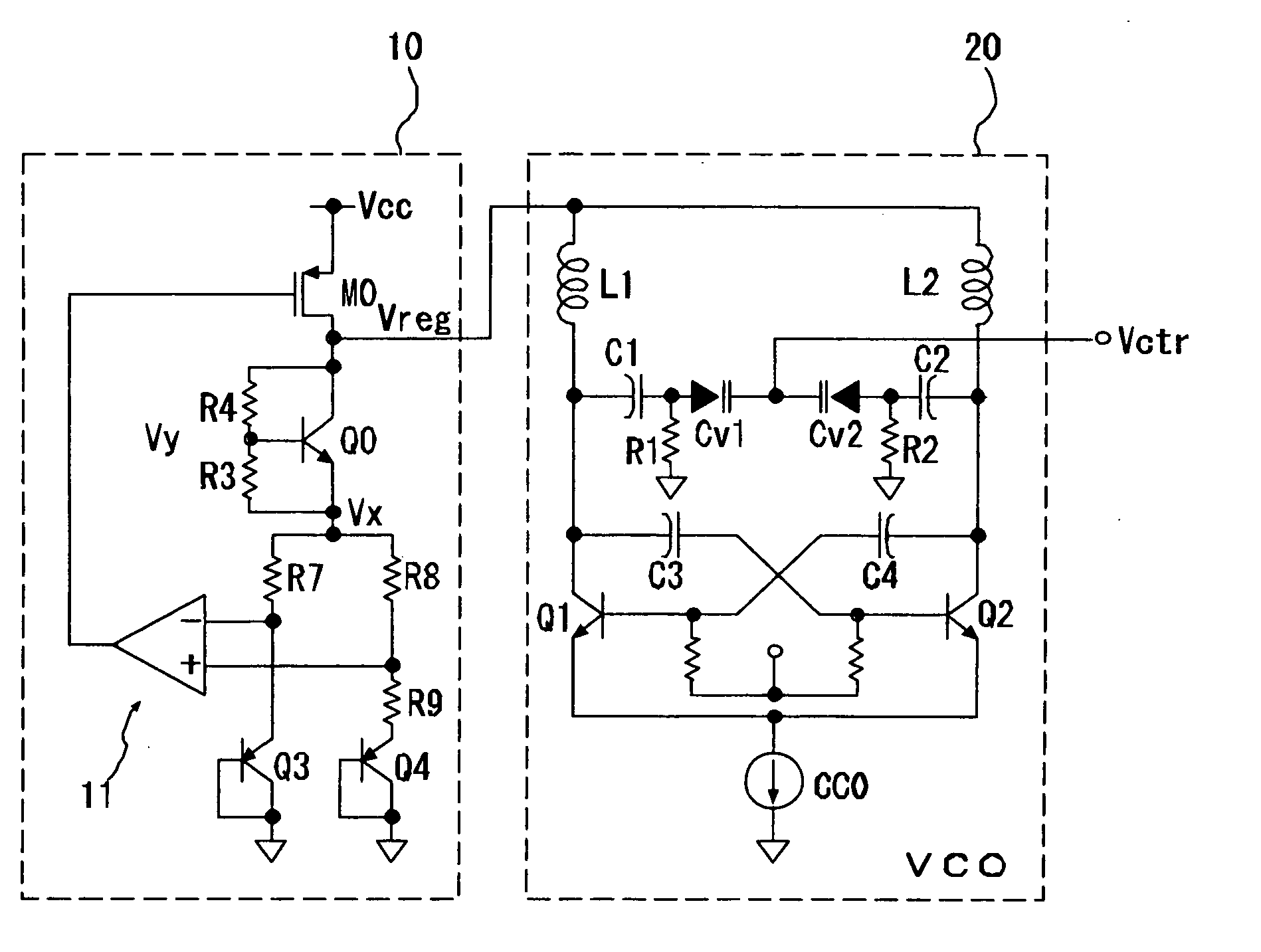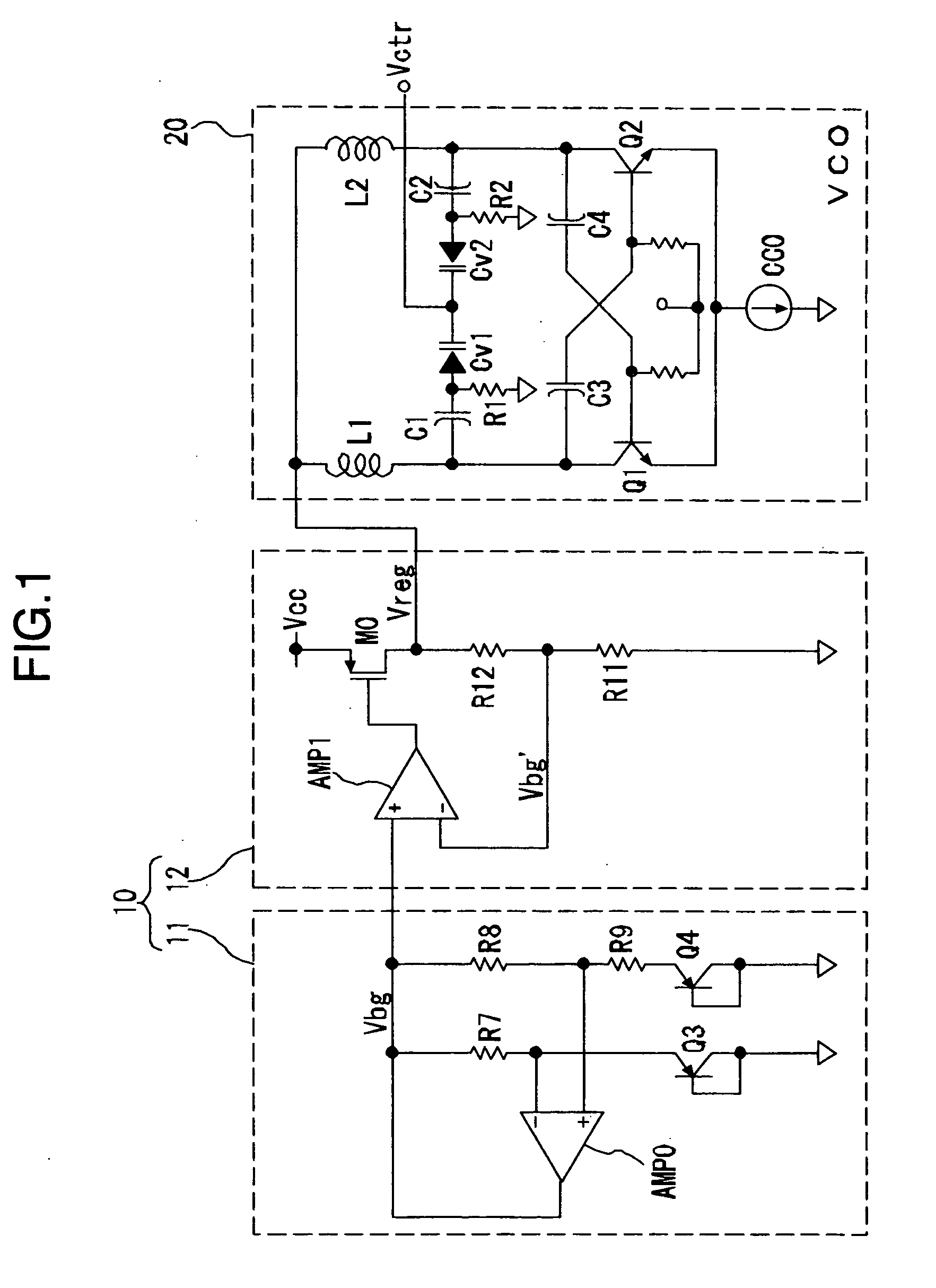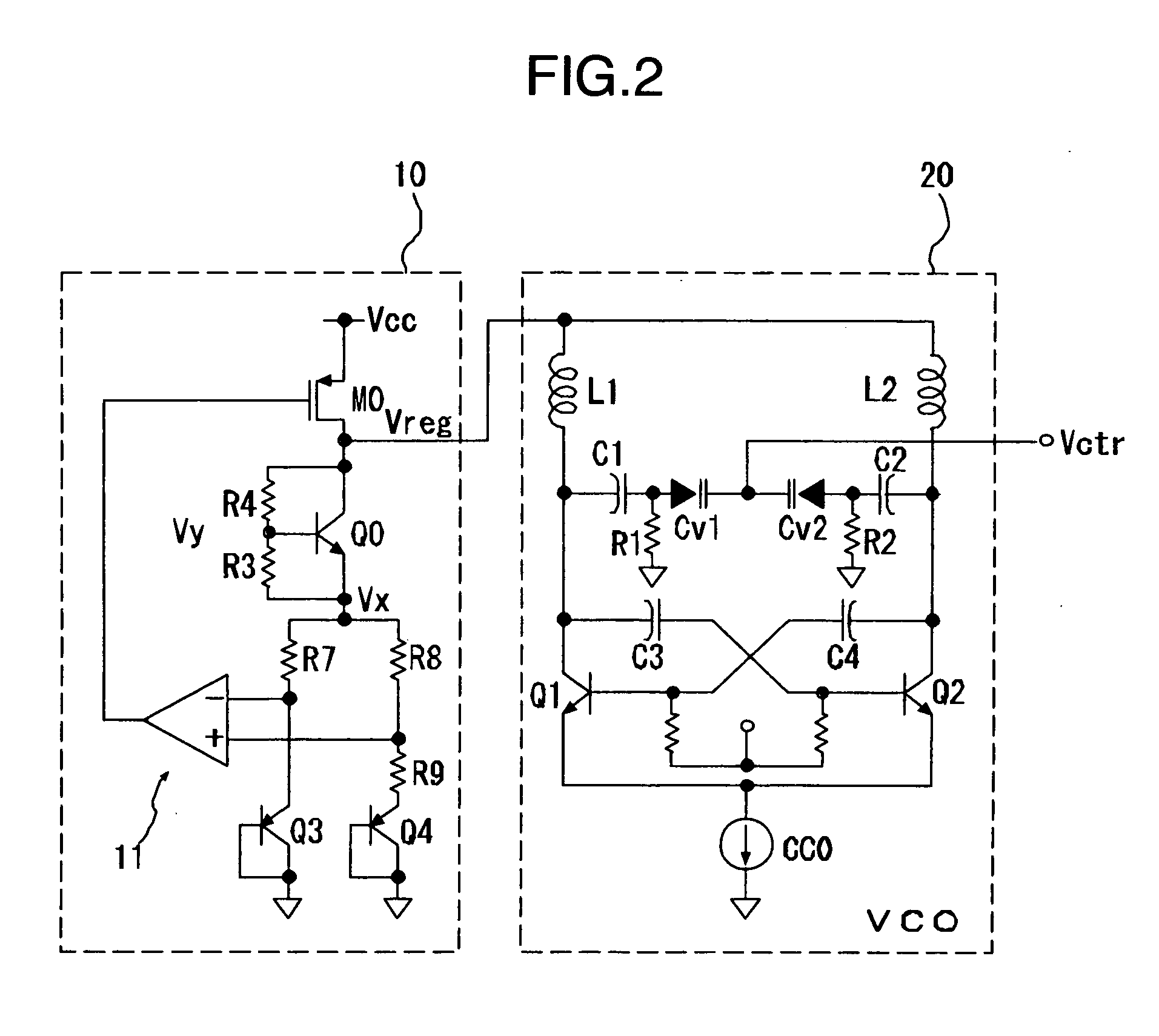Embedded structure circuit for VCO and regulator
- Summary
- Abstract
- Description
- Claims
- Application Information
AI Technical Summary
Benefits of technology
Problems solved by technology
Method used
Image
Examples
third embodiment
is generated. The voltage Vgs can be set arbitrarily by size adjustment of the transistors. Also, the temperature dependency of the voltage Vgs can be canceled by setting the reference voltage Vx, and by supplying the PTAT current of the band gap circuit 11 to the VCO 20, a similar effect to FIG. 3 is expected.
[0049] According to the modification shown in FIG. 6, the circuit shown in FIG. 5 is so configured that the inductors L1, L2 of the VCO are not connected in series to the transistors M1, M2 but in parallel to the varactor diodes Cv1, Cv2 between the differential output nodes with the intermediate node floating. Also, a pair of P-channel MOSFETs M3, M4 with the gate terminals and the drain terminals thereof cross-connected are connected in series to N-channel MOSFETs M1, M2 to make up a VCO of CMOS configuration. In this circuit, the regulator voltage Vreg expressed below is generated.
Vreg=Vgsn(M1)+Vgsp(M3)+Vx
[0050] The DC bias is determined by the gate-source potential Vgsn o...
second embodiment
[0051]FIG. 7 shows a power supply-integrated oscillation circuit according to the invention. In this embodiment, a VGS / R bias-type current source circuit without the transistor Q4 (M6) in series with the resistors R8, R9 is used in place of the band gap circuit as a current source circuit.
[0052] In the band gap circuit 11 according to the first embodiment, as described above, the negative temperature coefficient of the base-emitter (Vbe) of the transistor Q4 is canceled by the positive temperature coefficient of the resistors R7, R8. According to the second embodiment, on the other hand, the bias current is determined by Vgs(M5) / R9 and has a negative temperature coefficient.
first embodiment
[0053] Also, the VGS / R bias-type current source circuit according to this embodiment generates a smaller noise than the band gap circuit, and therefore, though more suitable for the low noise circuit than the first embodiment, requires another correction to secure stability against temperature. Incidentally, the transistor M5 may be a bipolar transistor instead of the MOSFET.
[0054]FIG. 8 shows a power supply-integrated oscillation circuit according to a third embodiment of the invention. Although the first and second embodiments described above use a LC resonance-type oscillator of differential configuration as a VCO. Nevertheless, the applicable VCO is not limited to such a type.
[0055] According to the third embodiment, the resonance unit of the VCO includes a quartz resonator XTL and a variable capacitor Cv1 for frequency regulation. The transistors M1, M2 having a negative resistance are biased by the voltage Vbias as a division of the regulator voltage Vreg through the resistor...
PUM
 Login to View More
Login to View More Abstract
Description
Claims
Application Information
 Login to View More
Login to View More - R&D
- Intellectual Property
- Life Sciences
- Materials
- Tech Scout
- Unparalleled Data Quality
- Higher Quality Content
- 60% Fewer Hallucinations
Browse by: Latest US Patents, China's latest patents, Technical Efficacy Thesaurus, Application Domain, Technology Topic, Popular Technical Reports.
© 2025 PatSnap. All rights reserved.Legal|Privacy policy|Modern Slavery Act Transparency Statement|Sitemap|About US| Contact US: help@patsnap.com



